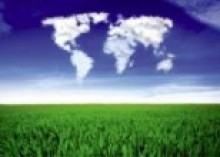Courses Offered in Venice
Summer 2023
Food, Agriculture, and the Environment (3 credit hours, LAWR IV) Food is essential for life, and a secure and nutritious food supply is necessary for healthy and stable societies. The agricultural practices of today, however, threaten the environment through greenhouse gas emissions, fertilizer and pesticide pollution, and biodiversity and ecosystem services loss as vast amounts of natural ecosystems are converted into croplands and pastures. Agricultural practices also impact the varieties and qualities of foods available to consumers.
Food, Agriculture, and the Environment will examine how agricultural and food laws and their accompanying regulations influence the level of environmental impact on shared natural resources such as air, water, soil, and biodiversity. The course will also consider how individuals as “eaters” contribute to the most pressing environmental global problems of our time including climate change and plastic pollution, and how, as community members, civic leaders, and/or professionals, individuals can promote environmental health and justice.
This course will take a comparative approach looking at the U.S., Italy, and the EU and accompanying legal and political structures at the state, local, and national levels. The course will consider food, agriculture, and the environment across the supply chain, including production, distribution, consumption, and disposal. The course will focus on laws that address regenerative and organic agriculture; farm labor; water, and energy use; land and marine resources; and consumption and diet. This course will also consider solutions to reduce agriculture’s environmental impacts on greenhouse gas emissions, land clearing, and biodiversity and to improve worker and consumer health. Specific topics include climate-smart farming, food labeling schemes, food and plastic waste, the circular economy, farmed animal welfare, and urban and aquatic farming.
Italy leads the EU in the total agricultural area dedicated to organic farming, and the course will examine how Italy (and the EU more broadly) supports sustainable agriculture and how these efforts can combat climate change, biodiversity loss, and pollution.
The course will take place inside and outside the classroom, with field trips to help students understand how Italy engages in sustainable agriculture and how Venice is preparing for climate adaptation and addressing plastic pollution. In-person and remote presentations from food, agriculture, and environmental experts are anticipated.
The course will use writing exercises to gauge progress and understanding, with a final writing assignment due at the start of the Fall Semester. The class satisfies LAWR IV. There will not be exams.
The course will be taught by Wake Forest University Law Professor Sarah Morath, author of From Farm to Fork: Perspectives on Growing Sustainable Food Systems in the 21st Century (University of Akron Press 2016) and Our Plastic Problem and How to Solve It (Cambridge University Press 2022).
Externships (2 credit hours, Experiential Learning) Each student will participate in a two-credit, pass/fail externship related to topics covered in class. It is expected that Food, Agriculture, and the Environment will be taught each weekday morning and externships will take place each weekday afternoon in Venice, Padua, or nearby towns.
To help integrate the internships with the course work, students will be asked to keep a journal of their externship experience. Question prompts to help students think critically about their internship and its
Non-Wake Forest students should confirm that credit for these courses is accepted in their home law school. Grades for non-Wake Forest students will be only on a Pass/Fail basis (with a “C” being the minimum grade to earn a passing grade.)


